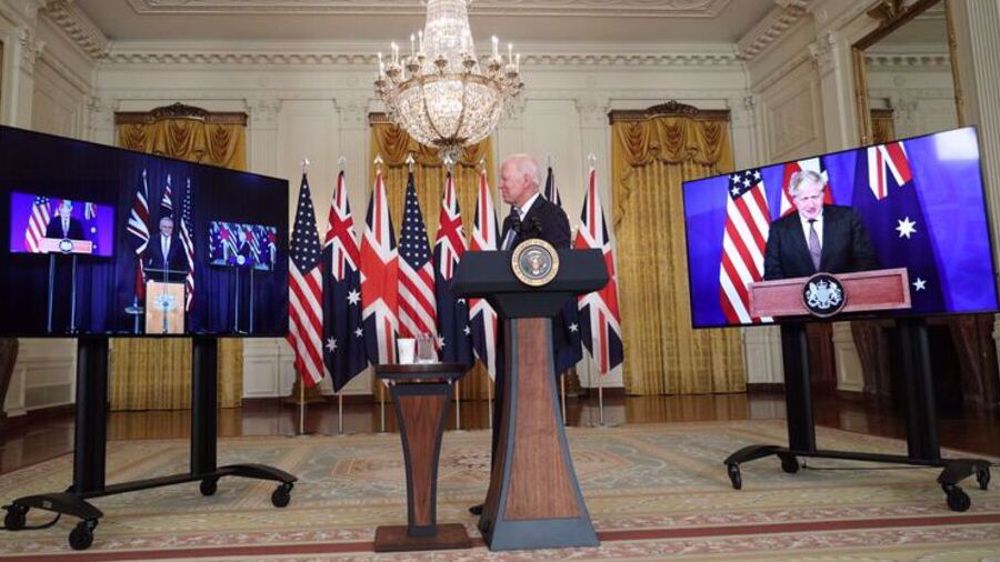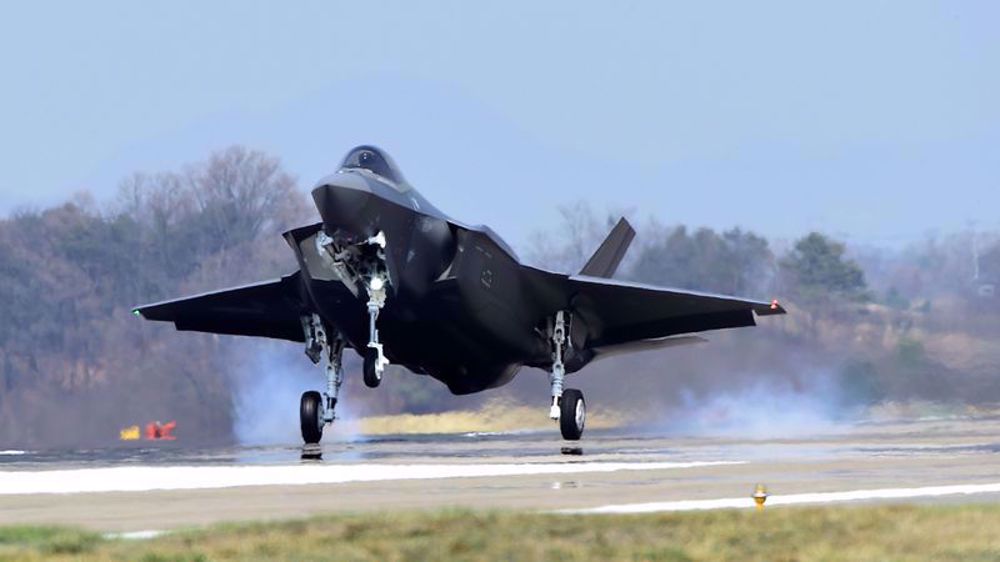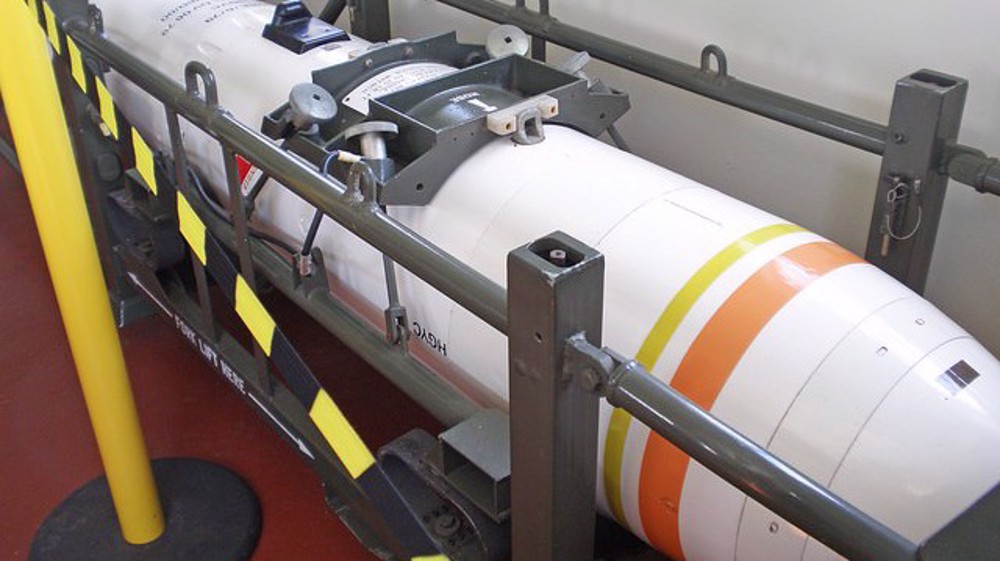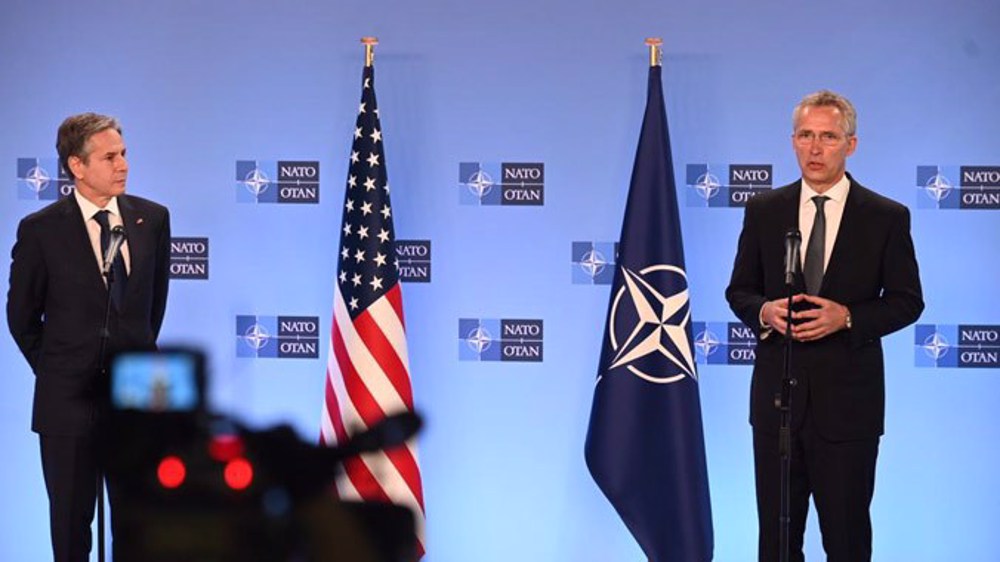China slams US-UK-Aussie pact to develop hypersonic weapons
China has censured newly-announced joint efforts by the US, Britain, and Australia to develop hypersonic weapons and electronic warfare capabilities.
"Anyone who do not want to see the Ukrainian crisis should refrain from doing things which may lead the other parts of the world into a crisis like this," said China's Permanent UN Representative Zhang Jun during a Tuesday press briefing.
"As the Chinese saying goes: If you do not like it, do not impose it against the others," Zhang added as he warned against the joint weapons project, which was justified as an effort to counter Russia’s military offensive against Ukraine.
His remarks followed an announcement by British Prime Minister Boris Johnson’s office unveiling the trilateral agreement to cooperate on a nuclear-capable weapons system after a virtual discussion on the project between Johnson, US President Joe Biden, and Australian Premier Scott Morrison.
"In light of Russia’s unprovoked, unjustified, and unlawful invasion of Ukraine, we reiterated our unwavering commitment to an international system that respects human rights, the rule of law, and the peaceful resolution of disputes free from coercion," the three leaders said in a joint statement, further reiterating their commitment to a "free and open Indo-Pacific."
The new AUKUS alliance — launched last September — led Australia to cancel a contract for a conventional French submarine in favor of a nuclear submarine program supported by the US and the UK, damaging its ties with France.
In the statement, the three heads of state said they were pleased with the progress of the program for conventionally armed, nuclear-powered submarines for Australia, and that the allies would cooperate in other areas as well.
"We also committed today to commence [sic] new trilateral cooperation on hypersonics and counter-hypersonics, and electronic warfare capabilities, as well as to expand information sharing and to deepen cooperation on defense innovation," the statement read.
"These initiatives will help to add to our existing efforts to deepen cooperation on cyber capabilities, artificial intelligence, quantum technologies and additional undersea capabilities," it added. "As our work progresses on these, and other critical defense and security capabilities, we will seek opportunities to engage allies and close partners."
The US and Australia already have a hypersonic weapon program called SCIFiRE — short for the Southern Cross Integrated Flight Research Experiment. British officials said that though Britain would not join that program at this point, the three countries would work together on research and development in the area to expand their options.
Hypersonic missiles travel at more than five times the speed of sound in the upper atmosphere, or about 6,200 km per hour (3,850 mph). This is slower than an intercontinental ballistic missile, but the shape of a hypersonic glide vehicle allows it to maneuver toward a target or away from defenses.
The US military has a number of hypersonic weapons programs across the Navy, Army, and Air Force but most are still in the development phase and highly secret.
Chairman of the US Joint Chiefs of Staff General Mark Milley claimed in October last year that Beijing had conducted a test of a hypersonic weapon as part of its effort to advance space and military technologies.
Russia has reportedly used hypersonic missiles in Ukraine. Its defense ministry announced last month that it had fired a Kinzhal missile to destroy an underground munitions dump in Western Ukraine.
The Kinzhal, carried by MiG-31 fighter jets, has a range of up to 1,250 miles and flies at ten times the speed of sound, according to Russian officials.
US, Israel suffered another defeat in terrorist riots after June war: Qalibaf
Al-Quds churches warn ‘Christian Zionism’ threatens Christianity
New York City's chief financial officer to defy Mayor Mamdani by purchasing Israeli bonds
European leaders reject Trump’s ‘blackmail’ over Greenland tariffs
Iran warns Europe is sidelining itself by ‘blindly following’ US, Israel
VIDEO | Press TV's news headlines
Pentagon readies 1,500 soldiers to deploy for Minnesota protests crackdown
US evacuation of Ain al-Asad base bolsters Iraq’s national sovereignty: Iran FM















 This makes it easy to access the Press TV website
This makes it easy to access the Press TV website